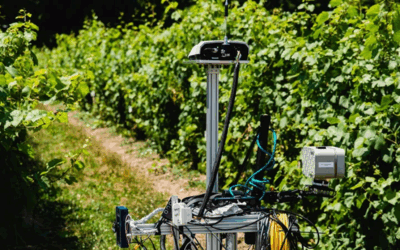The new cohort will investigate the use of AI to advance exploration in science, technology and engineering.
Cornell AI News
News Category
Filter by Topic
Doctoral student’s system eases patient-discharge process
Every day, millions of people are discharged after extended hospital stays, but matching these patients with appropriate care facilities can be arduous, often reliant on months-old, inaccurate data.
Now, a text message-based, hybrid computer-human system that regularly updates both patients’ and care facilities’ availability statuses, developed by a Cornell doctoral student, is smoothing that time-consuming process. The system was tested at a hospital in Hawaii for 14 months, beginning in early 2022, and helped place nearly 50 patients in care facilities.
Pain tolerance increases during social interaction in VR
Researchers in the Virtual Embodiment Lab found that engagement in social virtual reality, whether with loved ones or total strangers, enhances pain tolerance.
Empire AI: Cornell call for compute resource proposals
Empire AI is now soliciting proposals from Cornell faculty and researchers to use the extended “Alpha” machine with 144 H100 GPUs, as well as the new “Beta” machine that is expected to come online in December.
Cornell Institute for Digital Agriculture powers 15 innovative new projects
The Cornell Institute for Digital Agriculture (CIDA) has announced the recipients of its 2025 Research Innovation Fund (RIF) faculty and student grants supporting new, cross-disciplinary research projects designed to improve global food systems through digital innovation.
Global AI among three projects funded to build better future
A multidisciplinary team aims to build a more inclusive AI shaped by global cultures and knowledge – one of three projects that make up Cornell’s new Global Grand Challenge: The Future.
Reducing the cultural bias of AI with one sentence
“Cultural prompting” – asking an AI model to perform a task like someone from another part of the world – resulted in reduced bias in responses for the vast majority of the more than 100 countries tested by a Cornell-led research group.
Brevity is money when using AI for data analysis
A new computational system called Schemonic, developed by Cornell researchers, cuts the costs of using large language models such as ChatGPT and Google Bard by combing large datasets and generating what amounts to “CliffsNotes” versions of data








